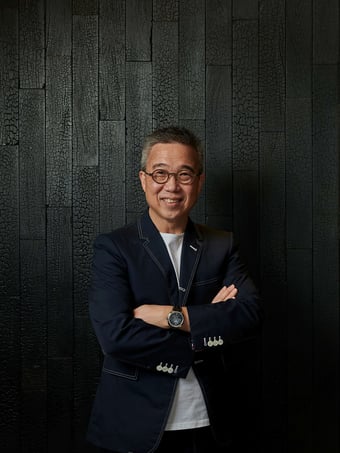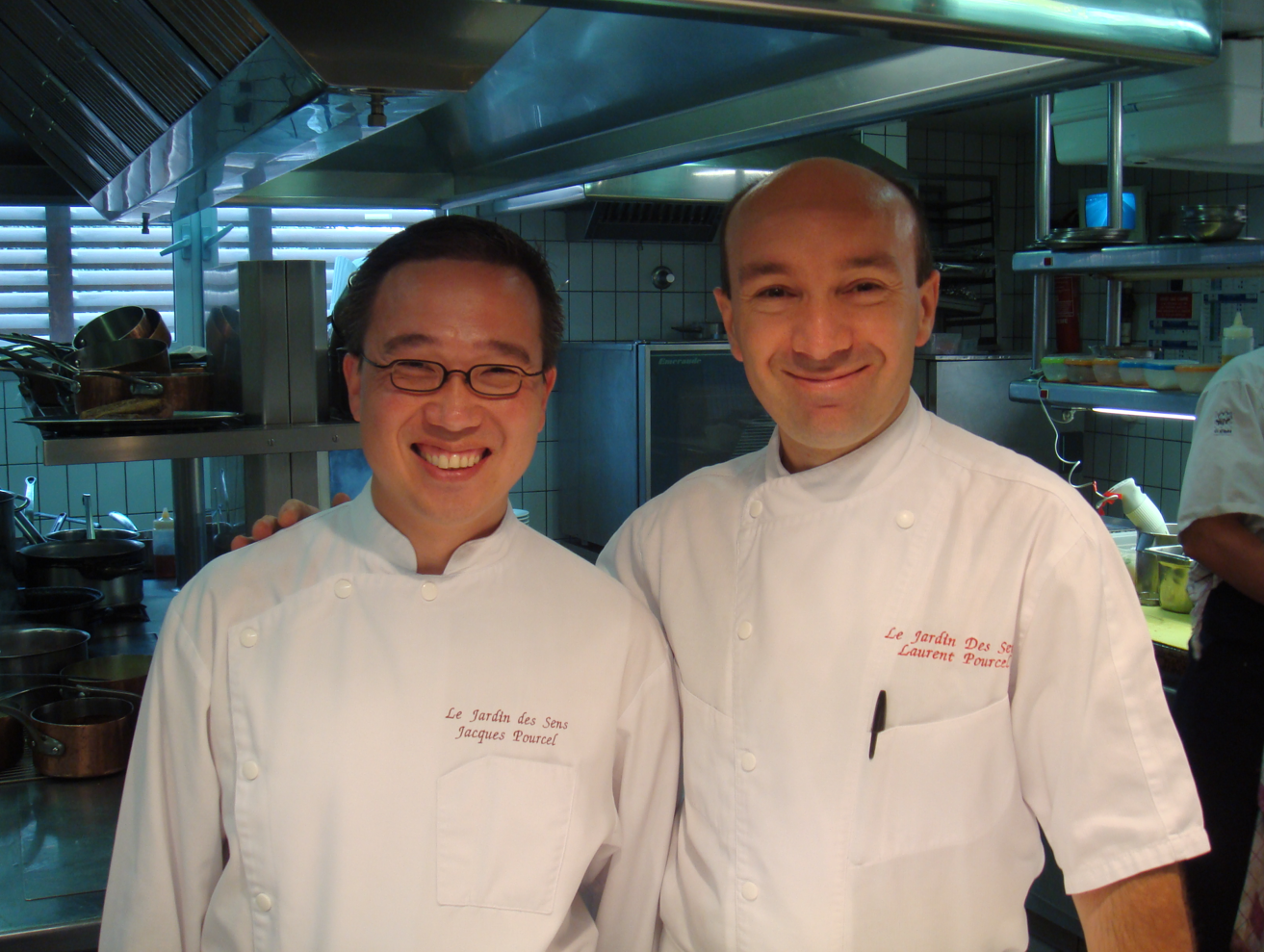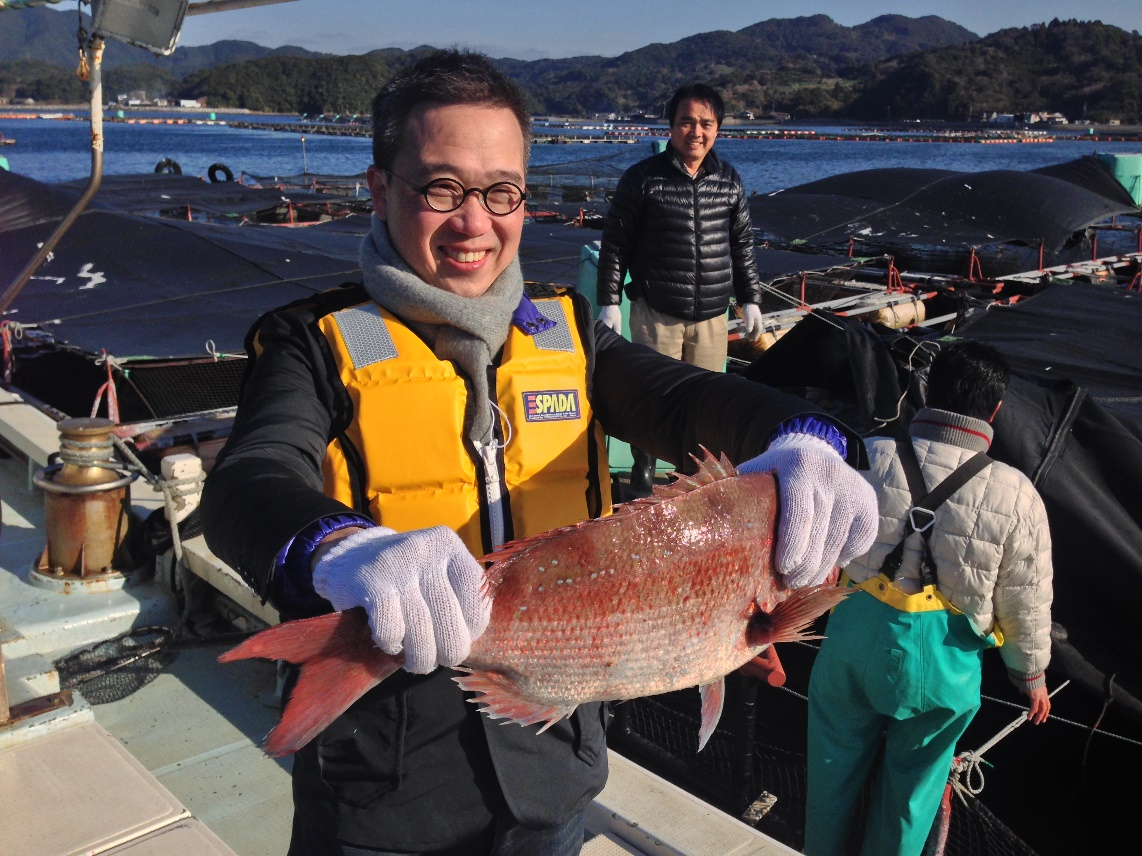Everybody needs to eat every day, no matter if we live in an arid desert or a metropolitan concrete jungle. That is why restaurants come and go - even at the toughest times when many restaurants shut down, there are always new comers to the market to keep the dining scene rolling. Having said that, some eateries do ride over waves and waves of challenges and stick around for decades. Over the last two years, the food and beverage industry in Hong Kong has seen upheaval but Paul Kwok, Executive Director and Chief Executive Officer of dining group 1957 & Co., and his team are still around to offer quality food, comfortable environment and attentive services to foodies.

Paul Kwok , CEO of 1957 & Co.
Kwok started off his career in the kitchen when he was 18, and by 28 he was the Executive Chef at the Raffles Club Hong Kong. Later, he was hired to establish and run more than 50 restaurants, including well known chains such as Hard Rock Café, Planet Hollywood and Mango Tree, across Southeast Asia and the Middle East. In 2010, he returned to Hong Kong and banded together with respected designer Steve Leung and lighting expert Tino Kwan, whom he has worked with when establishing new restaurants in Dubai and Beijing, to set up dining group 1957 & Co.
Changing Habits
Throughout his career, Kwok has witnessed dramatic changes of dining habits. “Traditionally, dining out was typically a family-oriented affair with a causal and communal style. Today, customers are seeking a more refined dining experience,” he observes. “Many Asian cuisines, such as Thai, Vietnamese and Chinese, are becoming delicately presented in recent years, just like western fine dining experience.”
Globalization has also allowed the use of the best foreign ingredients. “Wagyu beef is now commonly used in some Chinese dishes to satisfy the sophisticated palates.”
In the past, people used to prioritize food quality when they dine out. “Nowadays customers prioritize ambience over food and service,” Kwok explains. “The presentation and quality of food are no longer the only factors that determine restaurant success or failure.”
As a seasoned restauranteur, Kwok ensures that in all his restaurants, the food has to be of the best quality, the environment must be comfortable, and the service should be attentive. “By adhering to these three basic principles, you can be successful.” Yet he also admits that "from my experience, opening a restaurant is easy but to make it long term is difficult."

Paul Kwok with picture taken in Dubai
Strategic Partners
1957 & Co. currently runs eight restaurant brands, covering Japanese, Chinese, Thai, Vietnamese and Italian cuisines. In addition to quality food, comfortable environment and attentive service, the steady growth of the group lies heavily in long term business partnerships.
The first restaurant of the company was high end Japanese restaurant Sushi TA-KE at Causeway Bay’s Cubus, which featured mainly seafood dishes.
As fresh seafood prices fluctuate daily, it is common for chefs of upscale restaurants to negotiate with the suppliers and decide whether or not to make purchases. Kwok did not think this was good to the restaurant and he persuaded the seafood supplier to agree on a fixed monthly price that would generate a profit on average. “I told them at the beginning that if they provide me with the supplies that our restaurant needs at a fixed price, we will return favor and grow together when we expand and open new restaurants.” He summed up his philosophy, “Don’t treat me as your client and I won’t treat you as my supplier.”
This business relationship has turned out to be a success for both parties – 1957 & Co. opened more and more restaurants and the seafood supplier has become one of the largest in town. They work together as strategic partners and Kwok believes that such “deep, mutually beneficial relationships are essential to my business success,” especially at times like the post pandemic era with side effects such as inflation and supply chain problems.

Paul Kwok with Michelin three-starred Chef, Laurent Pourcel, at Le Jardin des Sens
Standardized Operations
He has also learned another key of success from American restaurant chain Planet Hollywood. “They have a core set of standard operating procedures to control the way that the restaurants operate,” he explains. “Usually the procedures are simple – as simple as purchasing the same brand of cutleries – but if someone doesn’t follow, things just start going wrong. We want to standardize customer service, purchasing, staff hygiene, food preparation and everything operational so that customers enjoy the same dining experience every time they visit us.”
The truth is, people may not look for the best taste of food but they expect the same taste and dining experience every time they visit the same restaurant.

Paul Kwok was on a business trip to Kumamoto
Unique Brands
In addition to self-owned brands, some of the restaurants under 1957 & Co. are franchise outlets such as Mango Tree and Paper Moon. Kwok explains that the management of franchise restaurants requires different strategies due to the varied policies of their franchisors. For instance, some might insist on strict adherence to their original menus, which are successful at their home towns but may fall short in a different location.
Taking Paper Moon as an example, the menu of Paper Moon is rather simple, but Hong Kong diners demand varieties. “So I convinced the franchisor to allow the Hong Kong outlet to deliver additional dishes as well.” However, he said, the mainstays such as pastas and pizzas must remain the same as people travel widely nowadays and those who have tried Paper Moon in the original Milan store may not appreciate a change of taste for the core dishes.
As for self-owned brands, “it's about uncovering your brand's unique, authentic identity and living it proudly. It's about being yourself, your very best self, bit by bit and day by day.” Kwok shares his experience and belief. After all, “every brand has its own unique and specific identity, and together they form an unbeatable alliance that contributes to the growth of the entire dining group.”


